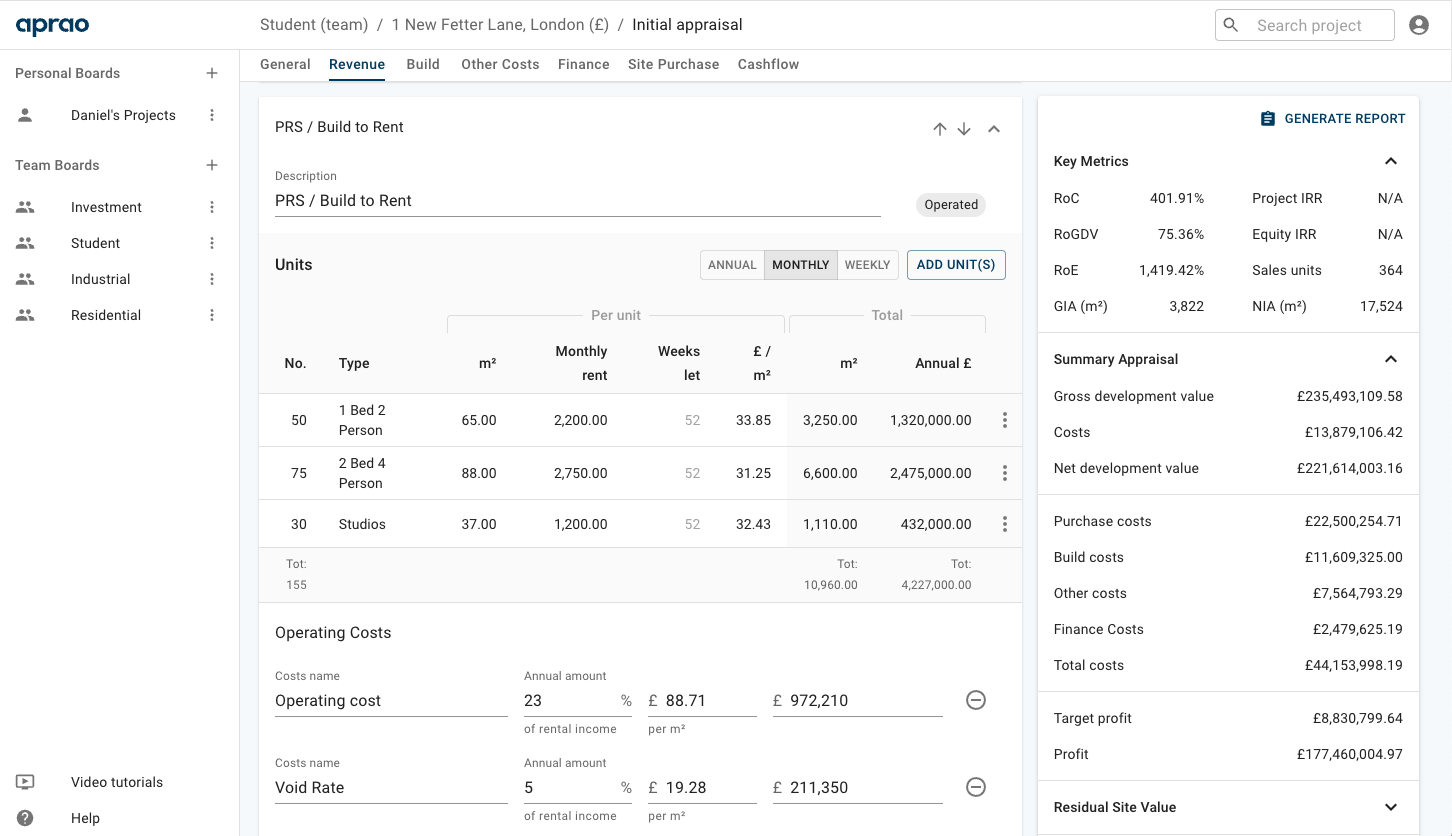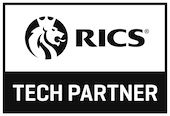At Aprao we've been working remotely for a while, and we know a lot of our customers and friends in the property industry - alongside cancelling events and taking extreme safety precautions - are now having to do the same.
The plan for remote work was always a priority, ever since we started Aprao - it was only a matter of "when", not "if". Why? Flexible work attracts and retains great talent. It gives ourselves and our team members the freedom to live and work wherever they like. It improves quality of life while reducing overheads and cost of living.
There are big wins to be had from remote work, and now that so many companies have been forced into adopting systems to support remote work, it's not going anywhere. Even when restrictions are lifted and life "goes back to normal", our workplaces will be forever changed. Hot desks and online meetings and asynchronous working were previously the domain of tech startups - not any more! Now, everyone knows how to get on a video call, schedule a meeting across multiple time zones, or collaborate using online tools.
Last year we wrote an article outlining our own remote work "toolbox" and we were really pleased to receive positive feedback from many of you who found it helpful. Almost a year on, we're now taking a look at what's worked well for us, and we're asking you: how are you managing remote work? What systems will you retain and what will be done away with? Read on to learn how your business can thrive in this new age of increasingly remote work.
In property development, what can be done remotely?
Developing property is often very practical, hands-on work. Unlike building software, you're building buildings. This is real-world stuff! Which begs the question, how much can realistically be done virtually? The answer might surprise you.
Let's start with the basics:
- Email:
- We know, that's really basic. But some people are still not using email effectively!
- Keep it actionable. Is there a clear outcome or decision being made here? Or is this just a conversation that will clog up people's inboxes?
- Is this something that could be resolved with a 2-minute call? Going back-and-forth over email might seem more efficient at times, but it can become a distraction or interruption.
- Do you have email open all the time? Try having set time slots (if you've got the sort of role that would allow for it!) where you tackle email.
- Remember: there's no such thing as an urgent email. If it's urgent, it's not an email. And if it's important enough to warrant a call or text, the email is just a formality to confirm and keep a record of any decisions made.
- Calendar:
- Have you made it clear ( by using a calendar that your colleagues and contacts can see) when you're available to talk business? A lot of "phone tennis" can be avoided by ensuring it's clear when you're able to take calls. This is especially important if you're working across multiple time zones.
- Do you set meetings with yourself? When working remotely, this can be a great way to block out time for focus, especially if you've got strategic work to do, or detailed work that requires your uninterrupted attention.
- Collaboration & communication tools:
- At Aprao, we use Basecamp to communicate and collaborate with one another.
- Having everything in the same place, with everything recorded (in case you need to check back!) saves us a lot of time, and helps set clear, manageable expectations.
- Again: we're trying to keep away from the dreaded overflowing email inbox! Using a collaborative tool like Basecamp (or one of the others out there - Slack, Asana, Monday, Microsoft Teams...) keeps conversations in an easy to manage conversational tool, which can be picked up when needed, rather than constantly monitored.
- People communicate in different ways. Giving them a platform where they can use text, images, and video doesn't just make work easier and more efficient - it makes it more fun!
- Project & task management:
- We also use Basecamp for project and task management: having a shared dashboard with projects, where everyone's responsibilities and delivery dates are clearly laid out, helps us to manage our time well and reduces the need for constantly checking in to see where a task or project is at.
- Trello is another great task management tool, with "cards" that can be moved between lists or columns, and you can use colour codes to create categories, and you can have multiple boards for different projects... it's a great platform and can be used in a multitude of applications, both business and personal.
Next steps:
- Live document management:
- Of all the tools you could implement, these do more for the Dreaded Email Inbox than any other!
- No more emailing versions back and forth - we don't need to do that any more! You can have ONE version of a word processing document, spreadsheet, or slide deck, with a record of what's been changed and when, and the ability for multiple people to work on the same document at once.
- For general use, Google docs is perfect for this purpose. For industry-specific use, you'll need industry-specific tools - like Aprao, for example! Use Aprao to collaborate on development feasibilities/appraisals and ensure up-to-date, accurate data is being used.
- There are a host of other proptech tools that can help you here. Fonn and ProjectPay are a great place to start! Let us know if you can think of any others.
- Smart presentations:
- Say goodbye to Death by Powerpoint.
- We touched on this above (you can collaborate on a slide deck using Google Slides) but there are other, more sophisticated tools out there when it comes to presenting your ideas.
- Interactive presentations allow for more fluid conversations when presenting, and often have better multimedia integrations than the standard tools.
- What this means in practical terms, is creating, sharing, and presenting ideas in a format that allows the viewers to lead the conversation, get the information they're looking for, and make decisions faster.
- Networking:
- Yes, we all miss standing around wearing itchy lanyards and holding plastic wine glasses half-filled with tepid chardonnay in a hotel basement with no windows and fluorescent lighting... it's very sad, and someday we'll be able to do it again. In the meantime, get online.
- Linkedin is obviously a tried-and-true way to identify and connect with people when physical space is not an option. The challenge, though, is that there's no social contract, so people are not obliged to listen or respond to what you've got to say.
- You need to offer value right off the bat if you want to successfully network online. Consider who you're speaking to, and what they're doing on a day-to-day basis. Do you have something to offer that could benefit them? Is it interesting enough that you can get them to commit to a quick video call?
- CRM:
- Remember when we all had a Rolodex? Remember when that turned into an Excel spreadsheet? CRM is what comes after that - a smart online platform where you can keep a record of all your interactions with your business contacts, and most importantly, ensure that they're kept in the loop, since you won't be bumping into them at any conferences for the time being.
- A CRM allows you to automate a whole lot of quotidien tasks that have the ability to get you and your team bogged down in repetitive work, instead of making the most of your time! Automated deal management, task creation, email outreach, and data updates can make a huge difference when it comes to freeing up your time.
Getting advanced:
Things start to get really interesting when you go from "survive" mode to "thrive" mode. Rather than simply overcoming the limitations and challenges posed by remote work, you can start to embrace digital transformation as an operational mindset that improves everything you do as a business.
- Machine learning:
- Machines aren't super creative. That's really handy... since they're great at doing the stuff humans don't like doing. (Nobody likes sending the same email 20 times over, trying to remember dates and times of things, keeping lists managed, reminding ourselves of what needs to be done... leave that to the computer!)
- Tech-wise, we're now at a stage where you can start offloading slightly more complex tasks than just the simple "if, then, else" stuff that can be set up with a bit of CRM automation.
- Machine learning can be leveraged when there's enough data involved; identifying patterns and taking (or simply recommending) actions off the back of that.
- An example of machine learning being applied to property development would be the ingestion of a database that lists the history and status of property development applications, identifies patterns in this data, and then makes recommendations to a developer regarding timelines for approval in certain geographical regions, at certain times of year, or in relation to other trends and factors at play.
- If all this sounds great in theory but you're not sure how it works in practice, you can look at adding to your tech stack with the support of a digital transformation consultant, or if you're big enough to have a development team (either in-house or outsourced) they may be able to build what you need. If it ends up being something really special, you could look at launching your own proptech!
- Automation:
- We've touched on this before, but again: automation is your friend. If you're on a Mac it can be as simple as setting up the Automator app (which comes free with your computer!) to do any repetitive tasks that just aren't a good use of your time.
- Analytics:
- Analytics tools can help you identify both strengths and weaknesses in your business, providing opportunities for growth.
- The most popular tool for this purpose is Google Analytics - a free tool that helps you report on your website traffic - but there are now a multitude of analytics tools that can be used across almost any area of your business.
- The most important insights you can get from analytics will help you to make strategic business decisions. For example, a UK-based business that uses Google Analytics may discover they are receiving visitors from the USA, and decide that in order to serve that market better, they will build a localised version of their website to target that market. Or a business using a forecasting analysis tool may discover that their target revenue goals aren't realistic for the current quarter, and adjust their business strategy accordingly.
- Augmented reality:
- AR is becoming increasingly useful in day-to-day life; which you'll know if you've ever gone to buy a piece of furniture from Amazon and used AR to see what it will look like in your living room using your mobile phone.
- In our industry, specific use cases around building visualisation are incredibly powerful, especially as a remote selling tool. Sure - most people will want to visit a site or a property in person. But that's not always necessary, depending on the circumstances.
- If nothing else - when it comes to retail sales, for example - AR helps filter out sales that were dead in the water to begin with, ensuring your team focus their attention on legitimate enquiries.
So, that's how we're thriving remotely! We hope you found some of this useful.
We'd also love to hear about your remote work toolbox - what's working for you? What's not working so well, and why? Email us, we'd love to add your input and share your insights!





Leave a comment